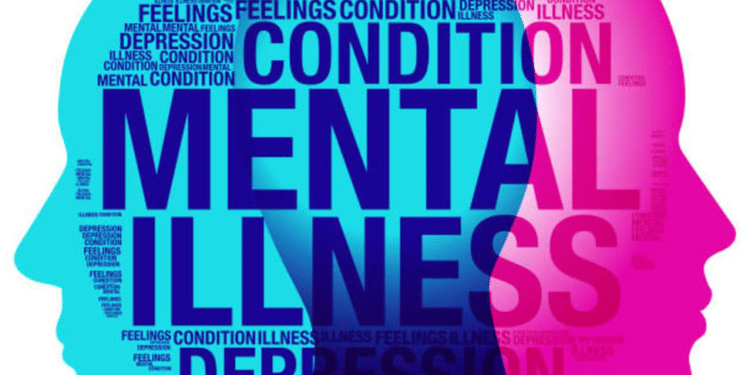In this current day and age, I doubt any of us are alien to the mental health topic. As the Kenya Model United Nations community, we have done our best to address what we can and I applaud the efforts, especially the chapters that stuck to mental health Mondays all the way to the end.
On a Saturday morning I reached out and was able to have an interview with Dennis Mahugu, a medical psychologist who specializes in family and addiction therapy.
A lot was discussed but anxiety, depression, family trauma and next age parenting was the major focus.
What is Anxiety
Anxiety is a feeling of worry, nervousness, or unease about something with an uncertain outcome. Anxiety can come in many forms like post-traumatic stress (PTSD), obsessive compulsive disorder (OCD), panic attack and Phobias. A lot of issues trigger anxiety in the modern-day student/ youth population; in fact, recent studies show that three quarters of the student/youth population deal with anxiety. This fact is alarming.
So how do we know how to deal with anxiety or manage it?
First it is imperative that we learn how to validate our emotions and feelings and not live in denial. Our different feelings, especially the negative which include anxiety, is our body’s alarm system. If you are feeling anxious about your upcoming exams it means that maybe you need to prepare a little better. Anxiety is a normal body function but when ignored and not properly dealt with it becomes paralyzing and derails your quality of life.
Also Read: DJ Brownskin& Tragic Video Sparks Mental Health Awareness in Kenya
Dennis describes anxiety as marking your exams before even sitting for them. We tend to focus on the end results of a certain event rather than the process. For example, we are anxious about exams because we think we might fail, we are anxious about presenting because we think we will mess up, we have phobias of different things because we think of the horrific end.
So how do we deal with and manage our anxiety?
First let’s address what we eat. I’m guilty of stress eating; I’m sure many of you are, Dennis strongly advices you to watch what you consume during these episodes. Avoid anything with caffeine, sugar, or any substances (alcohol, cigarettes, sheesha, marijuana, cocaine etc). Fatty fast foods are also a big no. What am I supposed to eat then? Apparently milk and bananas have a chemical in them that has been shown to reduce anxiety and depression levels.
Second, let’s address what we listen to and watch. We subconsciously program ourselves by what we watch and listen to.
Those violence filled movies may be cool and teach you how to defend yourself but it also imprints a violence streak on how to deal with anxiety or feelings that are overwhelming. Once in a while let’s all find out how to step back and either meditate or listen to calming music or even practice meditative breathing. Fun fact, studies show that more than 50% of the people who smoke cigarettes when nervous, don’t smoke because of the tobacco rather because of the breathing pattern while smoking. The pattern of breathing in the smoke, holding their breath and then exhaling calms them down, therefore if they learnt how to do it without the cigarette a lot of them would quit smoking.
Third, learn to create a routine where a lot of time management will be tackled so that anxiety about different events be lowered and better managed. Apart from this, learning how to manage worry, denial, isolation, and quitting is not the way to deal with it. Create a good social group of friends who can and will help you just by lending a listening ear and warm hug.
Also Read: Pathological Lying Could be a Mental Disorder after Increased Attention
Depression
Depression can be medically described as a mood disorder that causes a persistent feeling of sadness and loss of interest in things that make you happy and can interfere with your everyday life. Twenty-two percent of the students suffer from depression. I know 22% may seem like a small number but it’s higher than it should be. I myself being diagnosed with bipolar as a depressive mood order, depression isn’t the most ideal to work with.
Depression can be brought about by one of the following
- Quatre life crisis, which seems like what we are most likely dealing with as millennials and the Gen Z. We are questioning a lot of things in our lives. How are we going to move on from here? What happens after school? With such high unemployment rates how can I be sure that I will get employment to sustain myself? Will I be a failure? With the current economic situation in Kenya all these are valid questions. The problem is when we start fixating on them too much.
- Situational crisis, as the name suggests, is caused by an event. The loss of a loved one is the biggest trigger. Grief is a strong emotion. I’m sure we have all heard about the stages of grief, denial, anger, bargaining depression, and acceptance. Sometimes we get stuck at the depression stage and we don’t know how to move on to acceptance.
- Maturational crisis, as we move from one critical stage of our lives to the next from being students to being employees to being parents to being entrepreneurs to being grandparents, a lot can trigger us during any of the transitions and we’d find ourselves having a depressive episode occasionally. This is normal. What isn’t normal is staying in a depressing episode forever. A therapist once said let’s view our emotions and feelings as visitors, they come into our house, make us feel a certain way but they never stay and live with us. They could temporarily have a sleepover for a few days, but they never permanently stay.
How to deal with anxiety and depression
Most of the methods used to deal with anxiety can be used to deal with depression and vice versa.
Dr. Dennis gives the following to help combat both:
Self-care
Now people, let’s not go crazy and start demanding for spa dates every time we feel anxious (however relaxing they may be), there’s other ways to have a good self-care routine without spending about ksh.3000 every depressive episode and anxiety attack.
So, number one on this list would be sleep. Sleep is a restorative process that balances your hormones. Sleep is a natural selective serotonin reuptake inhibitor; the unnatural version is anti-depressants that are prescribed. So please take care of your sleep cycles. Have enough rest for your body to function well.
Hobbies
Number two, find a hobby that gets serotonin, dopamine and endorphins going. It could be as simple as dancing in your room to your favorite song or coloring/painting or even drawing.
Routine
Three, create and stick to a routine. During a depressive episode or an anxiety attack, a routine could save your mental state. Do a routine cleaning process or cook for someone you love or take that walk around the area you love, something to get you out of that stagnant state.
Support Group
Four have a peer support group. This can be a group of friends that are willing to lend a listening ear, a shoulder to cry on and give a big bear hug. They don’t necessarily have to give any advice but it’s essential that you feel safe talking about what you’re feeling. A problem shared is a problem half solved.
Nutrition
Five, eat your emotions. I know that sounds very wrong. Depending on what you’re eating, food can be your best friend when feeling anxious or depressed. So obviously don’t run for junk food, Dennis actually suggests that you try a banana and a glass of milk. I don’t know about you, I just heard about banana smoothies. My personal favorite is making a milk, bananas, chia seeds and cinnamon smoothie served chilled; this drink makes me feel better almost immediately so if you can please try it next time you’re feeling a little low with zero appetite. Milk and bananas have certain chemicals in them that actually trigger a release of serotonin in your body. I’m sure there’s more foods out there that do something similar, it’s all about learning about them.
Therapy
Last but not least, therapy. I know therapy isn’t cheap but there are institutions that do give free therapy sessions every week. If necessary, please do not be afraid to reach out for help when overwhelmed with a depressive mood and an anxiety problem.
What to avoid
I’m sure this list will not come as a shock to any of you.
Let’s start with something we abuse too often, alcohol. I’m sure we all know that alcohol isn’t good for your health, even worse it doesn’t let the brain give the right signals. If what you needed was serotonin once, you drink your brain doesn’t do that in time leading to a delay and maybe it’ll never be done. Let’s avoid drinking our emotions.
Next is smoking. Fun fact about smoking more than half the people who smoke aren’t really addicted to the tobacco they smoke because it brings a certain pattern of breathing. Deep breathe in, hold and breathe out. If those people are taught a proper breathing technique to distress them before buying a cigarette chances of them quitting are high.
Bad company. You know the people who aren’t right for you. I’m sure you know; you just have a fear of missing out. Bad company is bad for your mental health and I’m sure a lot of us know it.
Sadly, alone-time when depressed isn’t good for you either. A lot of us can’t sit with self-distractive thoughts and we shouldn’t. When we’re having those thoughts of how worthless we are and how we are such a huge failure we shouldn’t be alone.
Those thoughts never have a happy ending









































































